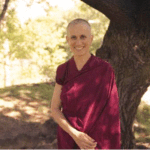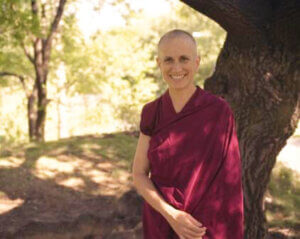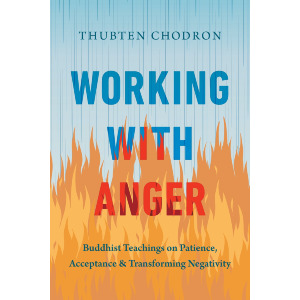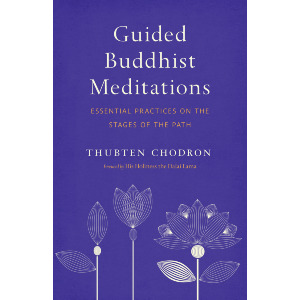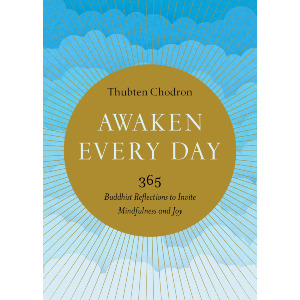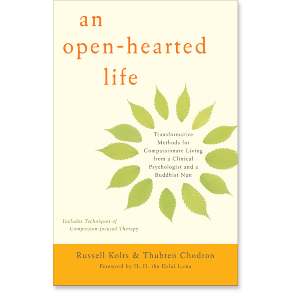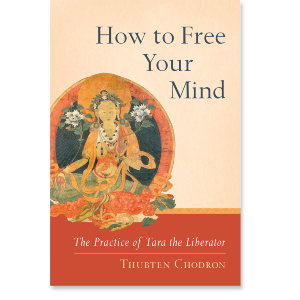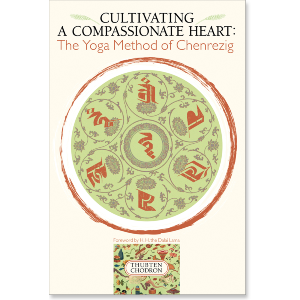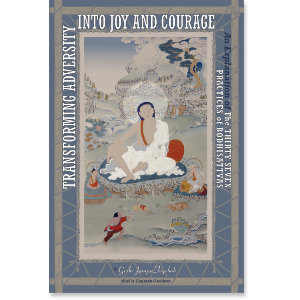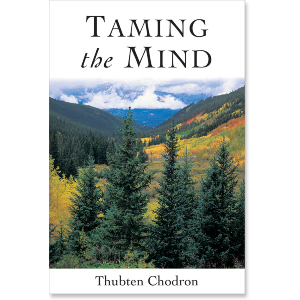Shambhala: How did you first encounter Buddhism, and what led you to practice it?
Thubten Chodron: I had traveled in India and Nepal during the early 1970s and had visited Buddhist sites, but didn't know anything about Buddhism. In 1975 I was a teacher in the LA city school system when I saw a flyer in a bookstore about a meditation course given by two Tibetan lamas, Lama Thubten Yeshe and Zopa Rinpoche, that summer. I went and was very struck by what they said. First, it made sense when I thought about it logically, and second, when I put the teachings into practice they really helped me. The Buddha presented a worldview that made sense and enabled me to understand many things in life that I hadn't been able to understand before. The teachings also gave my life a worthwhile purpose: what could be more worthwhile than cultivating wisdom and compassion?
S: I can't imagine anything more worthwhile. What led you to become a nun?
TC: I wanted to make a wholehearted commitment to living a meaningful life, and I also needed to get my behavior in line with my values. The simplicity and structure of monastic life also attracted me because it creates a lot of space and opportunity for serious study and practice of the Dharma.
S: You've been instrumental in the establishing Buddhist monasticism, especially for women, in the West. Do you see more women becoming nuns these days?
TC: Yes, more women are ordaining, especially in the Tibetan community. Because I've experienced the benefits of monastic life, I'm a strong advocate for it. I'm especially enthusiastic about women having the opportunity to receive full ordination, which is not currently available to them in all Buddhist traditions. At Sravasti Abbey, the monastery where I live in Washington State, we have a bhikshuni sangha, one of the very few for those who practice in the Tibetan tradition.
S: You've also been an active participant in interfaith dialogue. Has this affected your practice in any way, or the way you view it? And do you feel that the encounter with Buddhism, through you, has had an effect on the faith or practice of the Christians and Jews you've dialogued with?
TC: Interfaith dialogue helps me to see parallels in the practices of other religions, and it also makes me appreciate Buddhist worldview and philosophy even more. Formal interfaith dialogues usually attract people who are fairly open to start with. The real dialogues happen on long airplane flights when I'm sitting next to someone who has a fundamentalist view of their own faith! Recently I think I got through to a man who was trying to convert me (although he said he wasn't). He came to see that his words (he even said he sounded dogmatic) were contrary to the love and inclusion of all beings that God wanted.
S: You work with prisoners. How did you get involved with that and what have you learned from it?
TC: About 15 years ago an inmate wrote asking for some Buddhist books. I began corresponding with him, and slowly more inmates started writing. Now Sravasti Abbey puts out a quarterly Dharma newsletter for inmates, includes them in its Retreat from Afar, and sends them Dharma books. We also write to a number of inmates personally to help them with their Dharma practice. Working with the incarcerated has been a wonderful experience and I've learned so much from them.
S: Your new book, Don't Believe Everything You Think, is your commentary on a text called "The Thirty-seven Practices of Bodhisattvas. " What is this text, and what are its applications to twenty-first century people's lives?
TC: This short poem was written in Tibet several centuries ago and sets out all the major steps on the path to full awakening. It's especially applicable to modern life because it speaks about how to transform adversity into the path to awakening. It describes methods to deal with anger and resentment without exploding and without suppressing them. These are some of the practices I've found most useful in my life personally-they counteract anger, anxiety, and depression and help us open our hearts to have genuine care for others. The book contains many real life stories of how people used these 37 practices in their daily lives. This makes the book a fun read.
S: Sounds useful indeed. I know you've spent a lot of time with the Dalai Lama. What's he like?
TC: He's cool. Besides his brilliant intellect and open-mindedness, he tunes into people in an extraordinary way. I've seen him with many different people--some who seem very egotistic in my impure perception--and he is able to connect with them in a way that brings out their best. He is very tactful with some people and straightforward with others--whatever the situation requires. When teaching the Dharma, he weaves together strands from different teachings, helping us to see relationships that we haven't seen before and stimulating us to go deeper in our practice.
S: Thank you!
Visit Thubten Chodron's author page to see more books by her and to watch a video teaching. Or discover more books on The Thirty-Seven Practices of a Bodhisattva.

